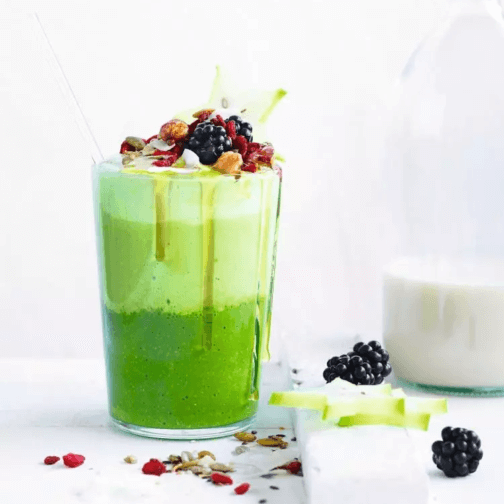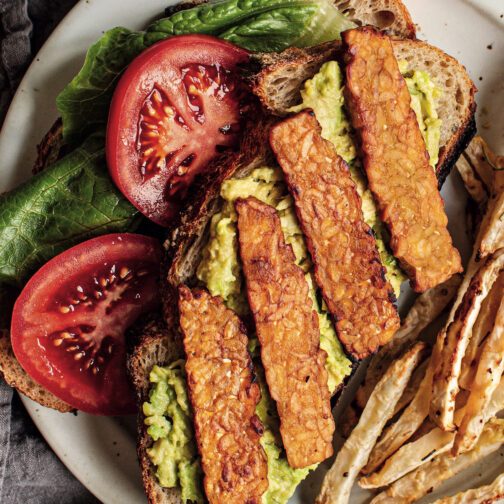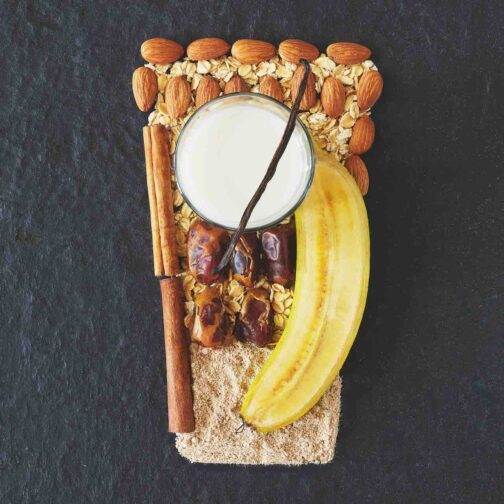
Forget fish oils – there is a marine microalgae that can better meet your omega-3 needs.
Omega-3 is an essential fatty acid that our bodies need for heart and brain health, strong immune systems, and good metabolism. Studies have indicated it may also have an effect on cognitive function and therefore the incidence of conditions such as anxiety, depression, and Alzheimer’s disease. Unfortunately, the human body cannot produce omega-3, so we have to consume it in our diets.
The three main omega-3 fatty acids are alpha-linolenic acid (ALA), eicosapentaenoic acid (EPA), and docosahexaenoic acid (DHA). ALA is found in plants such as flaxseeds, chia seeds and hemp seeds. EPA and DHA are a little more challenging for those following a plant-based diet as these are found mainly in fish and seafood. Our bodies can convert ALA into EPA and DHA, but only in very small amounts. This is where dietary supplements can be helpful. Many omega-3 supplements are made from fish oil or krill oil. However, these sea creatures don’t produce this nutrient themselves either – they obtain it by consuming the original source in their diets –marine microalgae, also known as marine phytoplankton. Phytoplankton are single-celled, aquatic plants that float in the upper layers of the ocean. Fish oils have become one of the biggest supplement industries in the world, but it doesn’t come without its problems.
Extracting oil from fish or krill requires multiple refining steps, often using solvents and chemicals in the process to reduce the amount of heavy metals and other contaminants in the end product. This increases the chance of oxidation and rancidity, due to the fish oil coming into contact with the ambient environment. There are also concerns regarding microplastics in wild fish and synthetic chemicals and antibiotics in farmed fish. In terms of sustainability, this $30 billion omega-3 industry poses a serious environmental threat, removing about 16 million tonnes of wild fish from the ocean each year. Overfishing also threatens the ocean’s food chain, impacting animals such as penguins, seals and whales, who all rely on krill as a food source.
There is an alternative though. We can cut out the ‘middlefish’ and we can simply consume the phytoplankton ourselves. These foods are available as supplements and wholefood powders, meaning we can obtain our omega-3 fatty acids in their purest and most bioavailable form.
Phytoplankton is currently harvested for human consumption in several different ways: wild harvested, grown in pools with or without covering, or otherwise grown in the highly controlled environment of a photobioreactor, as used by the brand Phytality. Aside from producing the purest phytoplankton, the photobioreactor also allows production to be increased simply by increasing the size of the facility – with no adverse effect on the ocean’s ecosystem. Given phytoplankton is a key food source for many marine animals, it is not ideal to remove this plant food from the ocean in great amounts. Also, these tiny plants are a vital natural resource for the climate – absorbing harmful carbon dioxide from the atmosphere through photosynthesis while also producing oxygen. In fact, scientists estimate phytoplankton may be responsible for more than half of all oxygen production, greater than that attributed to terrestrial plants.
When choosing a plant-based omega-3 supplement from the sea, we are better to avoid wild harvested products so as to leave all those powerful phytoplankton in the ocean where they belong. Besides, phytoplankton grown in a controlled environment produces a higher quality, higher purity omega-3 supplement. And in this case, the more controlled the environment, the better the end product for us and the ocean.





















